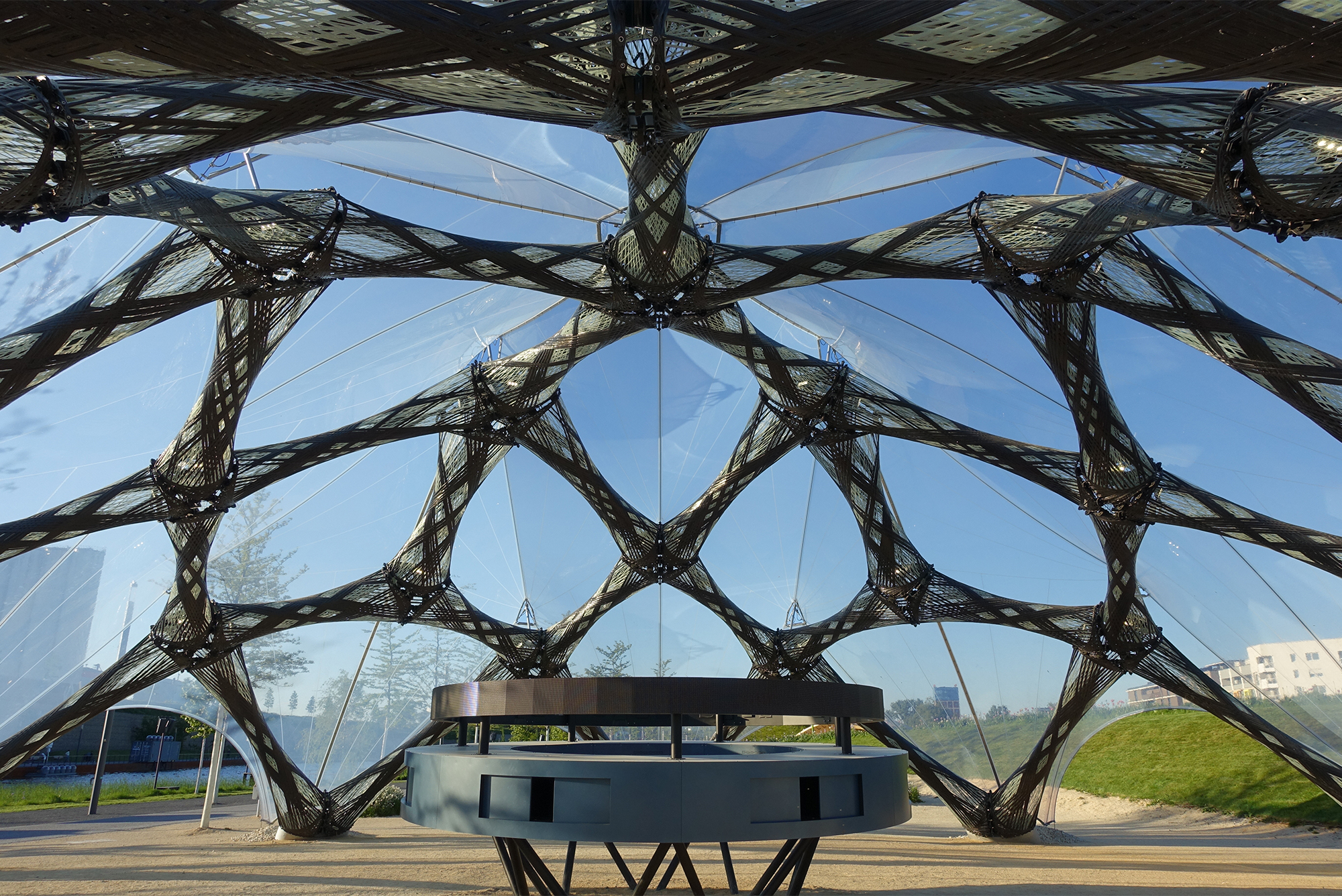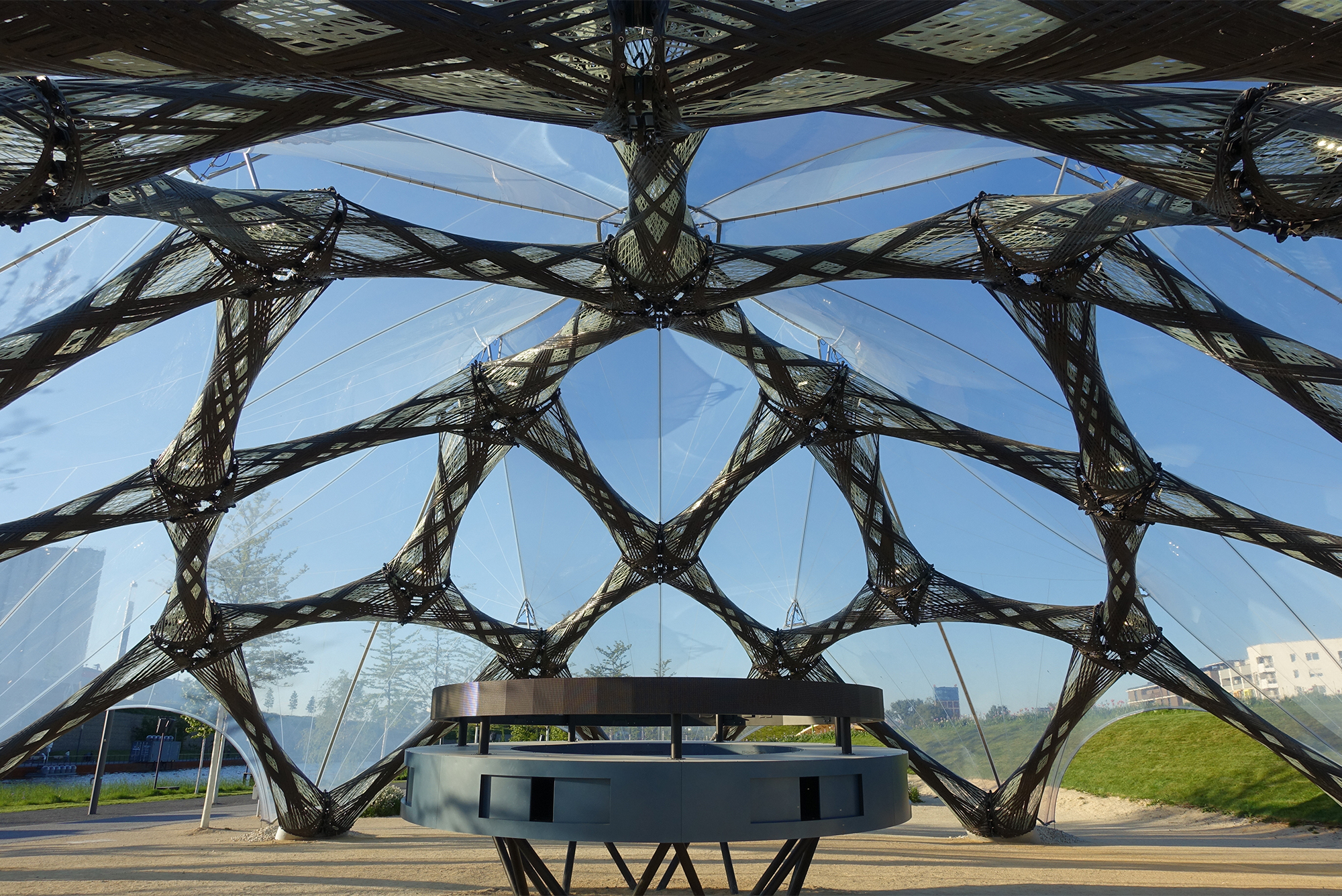Houses made of carbon? Detail Prize for Students and Architecture Schools 2020 goes to the BUGA Fibre Pavilion

Since 2012, the Institute for Computational Design and Construction (ICD) and the Institute of Building Structures and Structural Design (ITKE), both of the University of Stuttgart, have been researching the applications of supporting structures made of synthetic fibre composites. Now that all the required approval processes and industrial production are complete, the researchers have moved from the research pavilion to the public building.
Not least because of this decisive step in development, the BUGA Fibre Pavilion has been awarded the Detail Prize for Students and Architecture Schools for 2020. On the site where in the 2019 horticultural exhibition took place in Heilbronn, the bulldozers have started churning up the well-tended park in order to dig the excavation pit for the next building phase: a residential complex. The BUGA Wood Pavilion and the BUGA Fibre Pavilion, two spectacular demo buildings erected by the University of Stuttgart, appear to have done their work. A second life is at least ensured for the Fibre Pavilion, which covers 400 m2 and has a diameter of 23 m. The 60 individual elements are to be taken apart and reassembled at the 2023 Bundesgartenschau in Mannheim.
Until then, many new projects will surely have been built with the winding technique. This process, which was developed at the University of Stuttgart and whose versatility has been tested in a wide range of research pavilions, enables individual geometries without mould construction. The ICD and ITKE also wrote the machine code for the robotic production of the prototypes. Implementation was carried out by their industry partner FibR GmbH.
At the industrial facility, which has its own robot code, manufacturing a single component was five times faster than it had been at the prototype stage at the university. This increase in efficiency in the robotic production process decisively proves that this type of manufacture is now economically feasible. Indeed, it is the economic factor that makes the process accessible as a broader application in the construction industry.
The dramatic jut of the Visitor Center at the new Apple Campus in Cupertino, which was designed by Foster + Partners and opened in 2017, shows just how powerful carbon fibre can be for roof constructions. Next door the Steve Jobs Theater, also erected in 2017, claims to be the world’s largest carbon-fibre roof: its diameter measures 47.5 m and it weighs 67 t. The construction consists of 44 segments that have been assembled and mounted in one piece onto the load-bearing glass façade. The client and architect have not made further details available.


